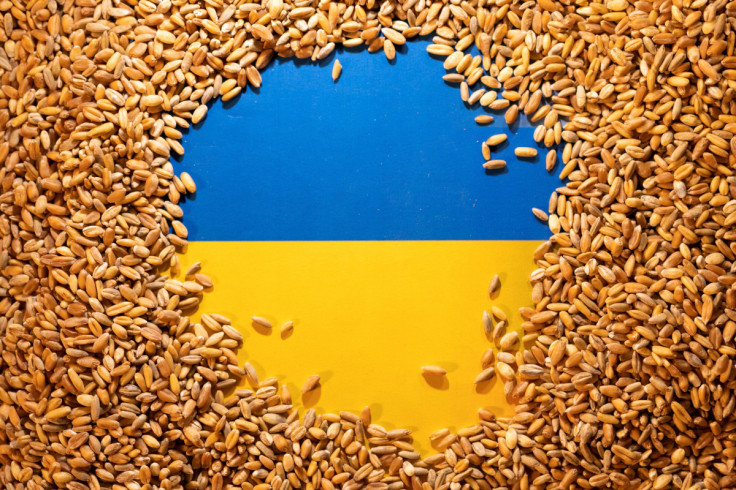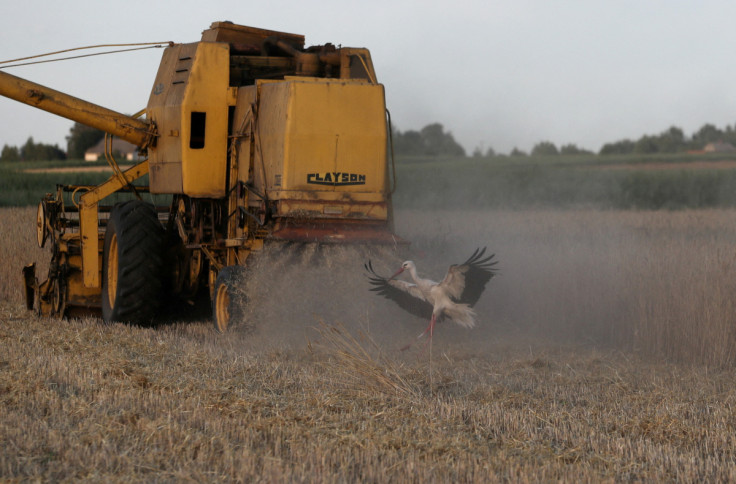EU Plans Farmer Support, Import Curbs Of Ukraine Grain

The European Union is preparing 100 million euros ($109.32 million) in compensation for farmers in five countries bordering Ukraine and plans to introduce restrictions on imports of Ukrainian grains.
Pressure has mounted on Brussels to work out a European Union-wide solution after Poland and Hungary banned some imports from Ukraine last weekend and other eastern European countries said they were considering similar action.
The countries became transit routes for Ukrainian grain that could not be exported by sea because of Russia's invasion.
Bottlenecks then led to the grain becoming trapped, forcing local farmers to compete with an influx of cheap Ukrainian imports they said lowered the value of their own crops.
The European Commission said on Wednesday it would take emergency "preventive measures" for wheat, maize, sunflower seeds and rape seed after a joint complaint from Bulgaria, Hungary, Poland, Romania and Slovakia at the end of March.
An EU official said this would only allow the grains to enter the five countries from Ukraine if they were set for export to other EU members or to the rest of the world. This measure would last until the end of June.
Separately, the European Commission, which oversees trade policy for the 27-nation EU, plans an investigation into whether measures are required for other sensitive products.
While the emergency measures can enter force within days, an EU investigation typically lasts six months.
European Trade Commissioner Valdis Dombrovskis discussed the plans on Wednesday with ministers from Bulgaria, Hungary, Poland, Romania and Slovakia, as well as with Ukrainian counterparts.
"We agreed today that we will continue these talks ... the next meeting will be at the beginning of next week - Monday, Tuesday," Polish Agriculture Minister Robert Telus told state-controlled broadcaster TVP Info.
"We, as frontline countries, will want to convince the European Union that we also want to protect other products," he said, without providing further details.
Under the EU-Ukraine free trade agreement of 2016, imports of the most sensitive farm products from Ukraine were subject to tariffs and quotas. The EU agreed to suspend all tariffs last year until June 2023 and the Commission has proposed extending this suspension for another year.
Poland, which is especially under pressure from its agricultural lobby in an election year, banned all grain imports, but agreed to allow grain to transit after discussions with Ukraine.
($1 = 0.9147 euros)

© Copyright Thomson Reuters 2024. All rights reserved.











